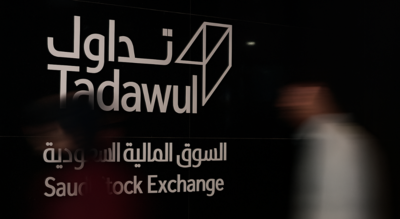ARTICLE AD BOX

GCC residents can now buy and sell shares directly on Tadawul, replacing indirect access and boosting regional investment opportunities/ Image: (File)
- Saudi Arabia now allows GCC residents to directly invest in its main stock market, Tadawul.
- Previously, Gulf investors could only access the main market via indirect swap agreements.
- New rules let former residents of Saudi and GCC countries continue investing post-residency.
- The reforms are part of broader Vision 2030 efforts to attract foreign investment and modernize markets.
- Saudi Arabia leads the Gulf in stock market size and trading activity, with $183.5B traded in H1 2025.
New Market Access for GCC Investors
Saudi Arabia is taking another bold step in its long-term plan to transform its economy and financial markets. In a major regulatory change, residents of Gulf Cooperation Council (GCC) countries are now permitted to directly invest in the Kingdom’s main stock exchange, the Tadawul.
This decision is part of a broader strategy to modernize Saudi Arabia’s capital markets, enhance foreign investor participation, and align with its ambitious Vision 2030 economic transformation program. Until now, access to Saudi Arabia's main stock market by GCC residents was significantly restricted. This update changes the rules of engagement for regional investors and builds on a series of recent reforms aimed at creating a more competitive and transparent investment environment in the Kingdom.
Expanded Access for GCC Residents to Tadawul
Previously, residents of the six-member Gulf Cooperation Council (GCC), comprising Bahrain, Kuwait, Oman, Qatar, Saudi Arabia, and the UAE, could not directly trade in Saudi Arabia’s main stock market, Tadawul. Their investment activity was restricted to:
- The debt market
- The parallel market (Nomu)
- Investment funds
- The derivatives market
If they wished to access the main market, they could only do so via swap agreements facilitated by capital market institutions. These agreements made them the ultimate beneficiaries, but investment decisions were made on their behalf by these institutions, limiting investor autonomy and transparency.
Under the newly approved regulations, GCC residents can now directly trade in listed equities on the Tadawul main market, providing them with full control over investment decisions and significantly improving their participation in the region’s largest stock exchange.
Broader Reforms Supporting Investment Flexibility
The reforms go beyond just GCC participation. According to Saudi Arabia’s Capital Market Authority (CMA):
- Individual foreign investors who were previously residents in Saudi Arabia or other GCC countries are now allowed to continue investing in listed equities even after their residency status expires. This provision extends investor rights beyond the duration of their physical presence in the region.
- Procedures for opening and operating investment accounts have been simplified for all types of clients dealing with capital market institutions. This includes institutional, and foreign investors, aiming to eliminate bureaucracy and enhance ease of doing business in Saudi markets.
These regulatory changes stem from a draft titled “Facilitating the Procedures for Opening and Operating Investment Accounts for Various Categories of Investors,” which was published by the CMA on November 20, 2024. It was opened to public consultation for 30 calendar days through:
- The Unified Electronic Platform for Consulting the Public and Government Entities, affiliated with the National Competitiveness Centre
- The CMA’s official website
The updated rules reflect the feedback received during this consultation phase and form part of a larger regulatory overhaul to modernize the Kingdom’s capital market structure.
Integration With Vision 2030 Goals
The decision to open the Tadawul main market to GCC residents is aligned with Vision 2030, Saudi Arabia’s national strategy launched in 2016 by Crown Prince Mohammed bin Salman. Vision 2030 seeks to:
- Diversify the economy away from oil
- Boost private-sector participation
- Improve employment rates, particularly among Saudi citizens
- Enhance female participation in the workforce
- Attract foreign direct investment
Over the past few years, Saudi Arabia has enacted multiple legislative reforms to attract global investors, including:
- The introduction of a new companies law and civil transactions law
- Enhancements to investment fund regulations
- New real estate rules allowing foreigners to buy property in specified zones of Riyadh and Jeddah, with special conditions applied to Makkah and Madinah
These reforms signal Saudi Arabia’s willingness to liberalize sectors that were once heavily restricted, including property and financial markets, to stimulate capital inflows and economic development.
A More Open Financial and Residency Framework
The Kingdom’s efforts to attract capital are also reinforced through its Premium Residency Programme, also known as the Saudi Green Card. Launched in 2019, this initiative allows eligible foreigners to live, work, and invest in Saudi Arabia without the need for a local sponsor (kafeel), a major departure from traditional Gulf sponsorship models. These residency reforms, coupled with changes to real estate ownership laws for GCC citizens, support a more integrated and flexible regional investment environment.
Gulf nationals can now engage in cross-border property ownership for both investment and residential purposes, aligning closely with the capital market reforms.
The Largest Stock Market in the Gulf
Saudi Arabia is home to the largest stock exchange in the Gulf region, with over 150 listed companies and commanding more than 40% of total GCC market capitalization. The Saudi Exchange (Tadawul) also offers investors broad exposure to key sectors, notably financial services and energy, among others.According to data from Argaam, a leading Saudi financial news platform, the Kingdom recorded $183.5 billion in trading value in the first half of 2025, a figure that far exceeds its regional counterparts:
- Abu Dhabi – $48.9 billion
These figures underscore Saudi Arabia’s dominant role in regional capital markets, making its recent regulatory reforms even more significant for Gulf investors and the broader economic integration of the region.



.png)
.png)
.png)
















 7 hours ago
5
7 hours ago
5









 English (US) ·
English (US) ·